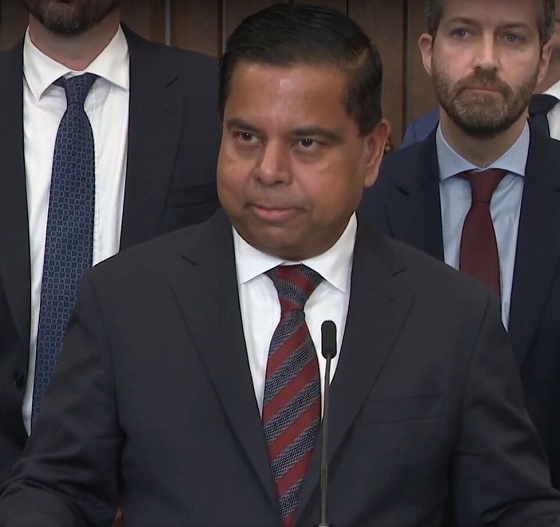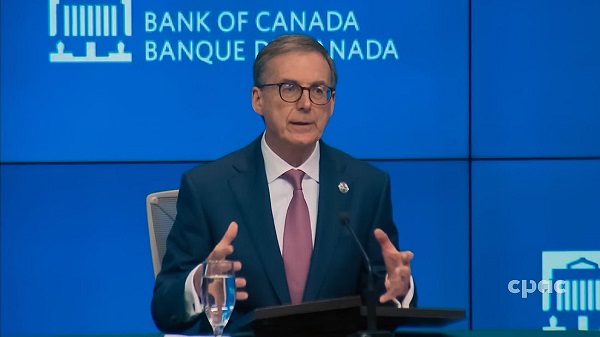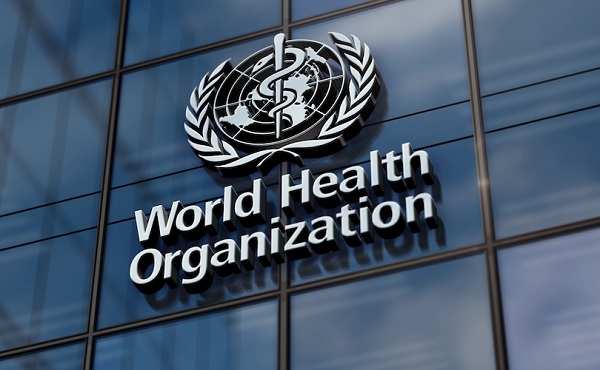Business
EU investigates major pornographic site over failure to protect children

From LifeSiteNews
Pornhub has taken down 91% of its images and videos and a huge portion of the last 9% will be gone by June 30 because it never verified the age or consent of those in the videos.
Despite an aggressive PR operation to persuade lawmakers that they have reformed, Pornhub is having a very bad year.
On May 29, it was reported that the European Commission is investigating the pornography giant and three other sites for failing to verify the ages of users.
The investigation, which comes after a letter sent to the companies last June asking what measures they have taken to protect minors, is being carried out under the Digital Services Act. The DSA came into effect in November 2022 and directs platforms to ensure “appropriate and proportionate measures to ensure a high level of privacy, safety, and security of minors, on their service” and implement “targeted measures to protect the rights of the child, including age verification and parental control tools, tools aimed at helping minors signal abuse or obtain support, as appropriate.”
According to France24: “The commission, the EU’s tech regulator, accused the platforms of not having ‘appropriate; age verification tools to prevent children from being exposed to pornography. An AFP correspondent only had to click a button on Tuesday stating they were older than 18 without any further checks to gain access to each of the four platforms.”
Indeed, Pornhub’s alleged safety mechanisms are a sick joke, and Pornhub executives have often revealed the real reason behind their opposition to safeguards: It limits their traffic.
Meanwhile, Pornhub — and other sites owned by parent company Aylo — are blocking their content in France in response to a new age verification law that came into effect on June 7. Solomon Friedman, Aylo’s point man in the Pornhub propaganda war, stated that the French law was “potentially privacy infringing” and “dangerous,” earning a scathing rebuke from France’s deputy minister for digital technology Clara Chappaz.
“We’re not stigmatizing adults who want to consume this content, but we mustn’t do so at the expense of protecting our children,” she said, adding later, “Lying when one does not want to comply with the law and holding others hostage is unacceptable. If Aylo would rather leave France than apply our law, they are free to do so.” According to the French media regulator Arcom, 2.3 million French minors visit pornographic sites every month.
Incidentally, anti-Pornhub activist Laila Mickelwait reported another major breakthrough on June 7. “P*rnhub is deleting much of what’s left of the of the site by June 30,” she wrote on X. “Together we have collectively forced this sex trafficking and rape crime scene to take down 91% of the entire site, totaling 50+ million videos and images. Now a significant portion of the remaining 9% will be GONE this month in what will be the second biggest takedown of P*rnhub content since December 2020.”
“The reason for the mass deletion is that they never verified the age or consent of the individuals depicted in the images and videos, and therefore the site is still awash with real sexual crime,” she added. “Since the fight began in 2020, 91% of P*rnhub has been taken down — over 50 million images and videos. Now a huge portion of the last 9% will be gone by June 30 because P*rnhub never verified the age or consent of those in the videos and the site is a crime scene.”
Mickelwait has long called for the shutdown of Pornhub and the prosecution of those involved in its operation. This second mass deletion of content, as welcome as it is, reeks of a desperate attempt to eliminate the evidence of Pornhub’s crimes.
Business
Justice Centre launches new petition: Keep cash legal and accessible. Stop Bill C-2

Public Safety Minister Gary Anandasangaree speaks to Bill C-2 (Screenshot from CBC video)
The Justice Centre for Constitutional Freedoms has launched a petition calling upon the Prime Minister of Canada to strike the criminalization of cash payments of $10,000 or more from Bill C-2 and to introduce legislation protecting the right of Canadians to use cash of any amount for legal transactions.
Public Safety Minister Gary Anandasangaree introduced Bill C-2, or the Strong Borders Act, in the House of Commons on June 3, 2025. According to a Government of Canada statement, Bill C-2 will equip law enforcement with tools to secure borders and to combat crime, the drug trade, and money laundering.
Buried deep within the Bill, however, are provisions that would make it a criminal offence for businesses, professionals, and charities to accept cash payments of $10,000 or more in a single transaction or in a series of related transactions.

Bill C-2 at page 59
Justice Centre President John Carpay warns that the criminalization of cash transactions threatens the privacy, freedom of expression, and autonomy of all Canadians. When cash transactions are criminalized, governments, banks, and law enforcement can track and interfere with legitimate purchases and donations.
“We must not criminalize everyday Canadians for using physical currency. Once $10,000 is criminalized, it will be all too easy for future governments to lower the threshold to $5,000, then $1,000, and eventually nothing.”
Bill C-2 is just one point in a concerning anti-cash trend in Canada.
Quebec’s controversial Bill 54, passed into law in March 2024, allows police to assume that any person carrying $2,000 or more in cash is connected to criminal activity. Officers can seize the cash, and citizens must prove their innocence to get the cash back.
“Restricting the use of cash is a dangerous step towards tyranny,” continued Mr. Carpay. “Cash protects citizens from surveillance by government and banks, credit card companies, and other corporations. In a free society, violating the right of law-abiding citizens to use cash is not the answer to money laundering or the drug trade.”
Signers of the petition call upon the Prime Minister of Canada to strike the criminalization of cash payments from Bill C-2.
Signers of the petition also call upon the Prime Minister of Canada to introduce legislation that protects Canadians’ right to use cash of any amount for legal transactions.
Business
Audit report reveals Canada’s controversial COVID travel app violated multiple rules

From LifeSiteNews
Canada’s Auditor General found that government procurement rules were not followed in creating the ArriveCAN app.
Canada’s Auditor General revealed that the former Liberal government under Prime Minister Justin Trudeau failed multiple times by violating contract procurement rules to create ArriveCAN, its controversial COVID travel app.
In a report released Tuesday, Auditor General Karen Hogan noted that between April 2015 to March 2024, the Trudeau government gave out 106 professional service contracts to GC Strategies Inc. This is the same company that made the ArriveCAN app.
The contracts were worth $92.7 million, with $64.5 million being paid out.
According to Hogan, Canada’s Border Services Agency gave four contracts to GC Strategies valued at $49.9 million. She noted that only 54 percent of the contracts delivered any goods.
“We concluded that professional services contracts awarded and payments made by federal organizations to GC Strategies and other companies incorporated by its co-founders were not in accordance with applicable policy instruments and that value for money for these contracts was not obtained,” Hogan said.
She continued, “Despite this, federal government officials consistently authorized payments.”
The report concluded that “Federal organizations need to ensure that public funds are spent with due regard for value for money, including in decisions about the procurement of professional services contracts.”
Hogan announced an investigation of ArriveCAN in November 2022 after the House of Commons voted 173-149 for a full audit of the controversial app.
Last year, Hogan published an audit of ArriveCAN and on Tuesday published a larger audit of the 106 contracts awarded to GC Strategies by 31 federal organizations under Trudeau’s watch.
The report concluded that one in five contracts did not have proper documentation to show correct security clearances. Also, the report found that federal organizations did not monitor how the contract work was being performed.
‘Massive scandal,’ says Conservative leader Pierre Poilievre
Conservative Party leader Pierre Poilievre said Hogan’s report on the audit exposed multiple improprieties.
“This is a massive scandal,” he told reporters Tuesday.
“The facts are extraordinary. There was no evidence of added value. In a case where you see no added value, why are you paying the bill?”
ArriveCAN was introduced in April 2020 by the Trudeau government and made mandatory in November 2020. The app was used by the federal government to track the COVID jab status of those entering the country and enforce quarantines when deemed necessary.
ArriveCAN was supposed to have cost $80,000, but the number quickly ballooned to $54 million, with the latest figures showing it cost $59.5 million.
As for the app itself, it was riddled with technical glitches along with privacy concerns from users.
LifeSiteNews has published a wide variety of reports related to the ArriveCAN travel app.
-

 Health2 days ago
Health2 days agoRFK Jr. purges CDC vaccine panel, citing decades of ‘skewed science’
-

 Immigration2 days ago
Immigration2 days agoMass immigration can cause enormous shifts in local culture, national identity, and community cohesion
-

 espionage2 days ago
espionage2 days agoFBI Director: CCP Behind Wave of Pathogen Smuggling as Third Chinese Student Charged in Michigan Lab Probe
-

 Health2 days ago
Health2 days agoPolice are charging parents with felonies for not placing infants who died in sleep on their backs
-

 Red Deer2 days ago
Red Deer2 days agoRed Deer Student honoured with Chief Youth Courage Award
-

 Freedom Convoy1 day ago
Freedom Convoy1 day agoFreedom Convoy leader Chris Barber to learn in July whether or not he could face jail time
-

 Business2 days ago
Business2 days agoAlberta’s Nate Horner scores a B on CTF Finance Minister Report Card – Second highest rating in Canada
-

 Business18 hours ago
Business18 hours agoVanishing lines and fading logic







